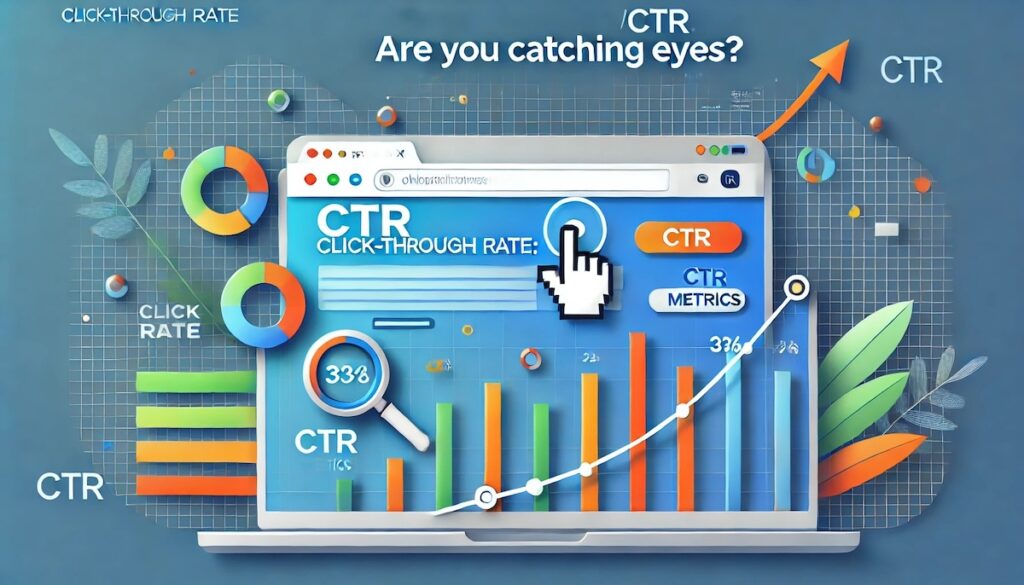SEO is a bit like a treasure hunt, except the treasure is organic traffic, and the map is made of metrics. But with so many numbers and graphs staring back at you, it can feel overwhelming. Don’t worry—we’re here to make sense of it all. Whether you’re an SEO novice or a seasoned pro, knowing the right metrics to track is the key to success.
So, let’s dive into the wonderful world of SEO website metrics and uncover how they can help you fine-tune your strategy and conquer the search engine rankings.
1. Organic Traffic: The King of Metrics
If SEO were a kingdom, organic traffic would wear the crown. This metric tells you how many visitors are finding your website through unpaid search results.
Why It Matters:
It’s the ultimate proof that your SEO efforts are paying off. If your organic traffic is growing, Google loves you (and your content).
Pro Tip:
Break it down by landing page to see which content is pulling its weight and which needs a little TLC.
2. Keyword Rankings: Where Do You Stand?
Think of keywords as your soldiers in the SEO battlefield. Tracking their performance is essential.
Why It Matters:
Keywords show you how visible you are to your target audience. If you’re not ranking for your chosen terms, it’s time to adjust your strategy.
How to Track:
Use tools like SEMrush, Ahrefs, or Google Search Console to monitor your rankings over time.
3. Click-Through Rate (CTR): Are You Catching Eyes?
CTR measures the percentage of users who click on your link after seeing it in the search results.
Why It Matters:
A low CTR means your title tags and meta descriptions might need some pizzazz.
How to Improve It:
Make sure your meta descriptions are irresistible and include a clear call-to-action.
4. Bounce Rate: Are You Holding Their Attention?
Bounce rate tracks the percentage of visitors who leave your site after viewing just one page.
Why It Matters:
A high bounce rate might mean your page isn’t delivering what users expect—or worse, it’s boring.
How to Fix It:
Enhance your content, improve page speed, and make navigation intuitive.
5. Page Load Time: The Need for Speed
Page speed is a make-or-break metric in the world of SEO.
Why It Matters:
Slow pages lead to high bounce rates and lower rankings. Google loves fast-loading sites, and so do users.
Pro Tip:
Use Google PageSpeed Insights to identify and fix bottlenecks.
6. Backlinks: Building Your Reputation
Backlinks are like votes of confidence from other websites. The more high-quality links you have, the more authority you build.
Why It Matters:
Search engines see backlinks as a sign of trust and credibility.
Track It:
Monitor your backlinks using tools like Moz or Ahrefs to ensure you’re gaining links from reputable sources.
7. Domain Authority (DA): Your SEO Street Cred
DA is a score that predicts how likely your website is to rank on search engine results pages (SERPs).
Why It Matters:
It’s a quick way to gauge the overall strength of your website’s SEO.
How to Improve:
Focus on acquiring high-quality backlinks and consistently creating valuable content.
8. Conversion Rate: Turning Visitors into Customers
Driving traffic is great, but conversions are the ultimate goal. This metric tells you how many visitors are taking the desired action, like making a purchase or signing up for a newsletter.
Why It Matters:
High traffic with low conversions is like throwing a party and nobody dancing.
Optimize It:
A/B test your CTAs, improve your landing pages, and ensure a seamless user experience.
9. Average Time on Page: Quality Over Quantity
This metric tells you how long visitors are sticking around on your site.
Why It Matters:
The longer visitors stay, the more engaged they are with your content.
How to Improve:
Create in-depth, valuable content that keeps users hooked.
10. Mobile Usability: Keeping Up with the Times
With mobile devices accounting for a significant portion of web traffic, this metric is a must-track.
Why It Matters:
Google prioritizes mobile-friendly sites in its rankings, and so should you.
Check It:
Use Google’s Mobile-Friendly Test to see how your site performs.
11. Crawl Errors: Fix the Bugs
Crawl errors occur when search engines can’t access your pages.
Why It Matters:
If search engines can’t crawl your site, you’re missing out on valuable rankings.
Pro Tip:
Check Google Search Console regularly to identify and fix crawl errors.
12. Content Performance: Know Your Stars
Some pages shine brighter than others. Tracking which content performs best helps refine your strategy.
Why It Matters:
It shows you what your audience loves and where to focus your efforts.
How to Track:
Use Google Analytics to identify your top-performing pages.
13. Local SEO Metrics: Owning Your Neighborhood
For businesses targeting local audiences, metrics like Google My Business insights and local search rankings are crucial.
Why It Matters:
They tell you how visible you are to nearby customers.
Boost It:
Optimize your GMB profile and encourage customer reviews.
14. Social Signals: Likes, Shares, and Follows
While not a direct ranking factor, social signals can amplify your content’s reach.
Why It Matters:
More social shares can lead to increased traffic and backlinks.
Pro Tip:
Promote your content on platforms where your audience is most active.
15. SERP Features: Beyond the Blue Links
Appearing in rich snippets, featured snippets, or local packs can dramatically boost visibility.
Why It Matters:
These features position your content as the go-to answer for user queries.
How to Optimize:
Use schema markup and structure your content to answer questions clearly.
16. ROI: The Ultimate Metric
At the end of the day, SEO is about return on investment. Track how much revenue your SEO efforts are generating compared to your costs.
Why It Matters:
It’s the bottom line of any strategy.
Track It:
Use tools like Google Analytics and CRM software to measure ROI.
Conclusion
Tracking metrics isn’t just about numbers—it’s about understanding your audience, refining your strategy, and achieving your goals. By keeping an eye on the best SEO metrics to track, you’ll not only optimize your performance but also unlock the full potential of your digital presence.
After all, how do you use metrics to inform your strategy in SEO? The answer lies in the data—and it’s time to let the numbers guide your way.







